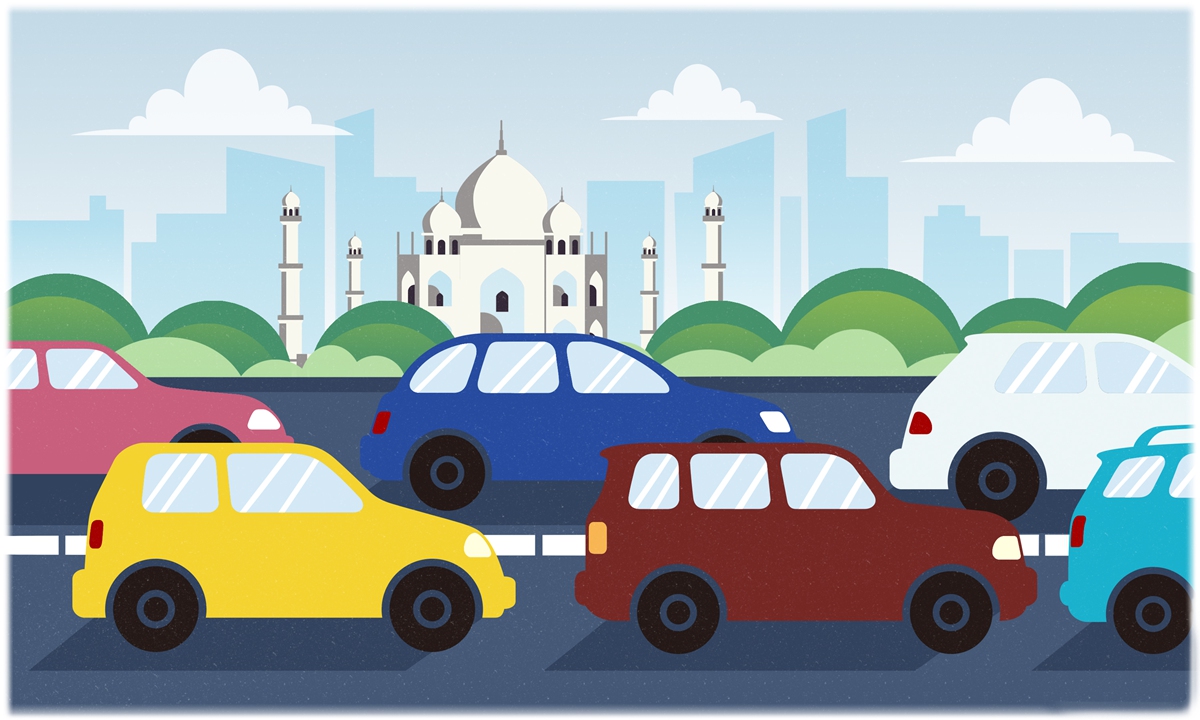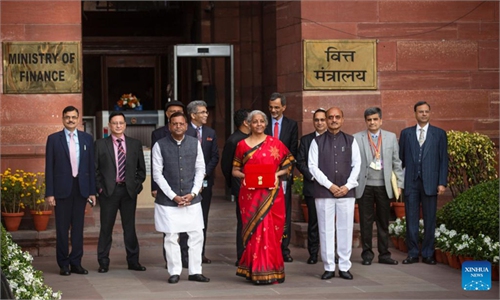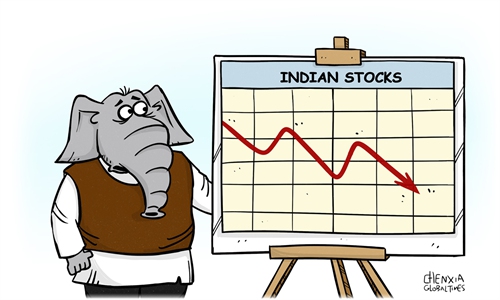
Illustration: Chen Xia/Global Times
To encourage foreign automakers to test their vehicles in India, import duty will be removed for automobiles brought in for testing at the country's vehicle testing agencies such as International Center for Automotive Technology (iCAT), the Economic Times reported on Monday. The exemption of import duties is undoubtedly conducive to the development of India's automobile manufacturing industry and should therefore win applause from all directions, but it should be pointed out that the country may still has a long way to go to become a "global testing hub."The exemption will take effect from April 1. Currently, foreign automakers have to pay an import duty of 252 percent on the vehicles they bring into the country for testing. Mahendra Nath Pandey, minister of heavy industries, was quoted by the Business Standard as saying that the custom duty is too high to maintain Indian test agencies' competitiveness and "with zero custom duty India will become a global testing hub."
Although the tariff exemption is a step in the right direction, it will be a little too optimistic to assume that India can become a global testing hub without a mature auto manufacturing sector and a complete industrial chain as the basis for development.
The Indian government has four vehicle testing centers including iCAT. Although Indian agencies has key facilities such as vehicle crash test system, sled test system, pedestrian protection system, and airbag deployment system, the country is not yet an attractive destination for testing and certification of vehicles. Currently, global automakers mostly test their vehicles in the US, Japan, South Korea and China.
The growth in automotive testing market is mainly driven by the factors such as growing automobile production. The exemption of import duties is simply not enough to make India a global testing hub. If India wants to realize its ambitions in the auto industry, more efforts should be made to inject new momentum into the economy.
In the January-November period 2022, 4.13 million vehicles - including passenger and commercial - were sold in the country, the Times of India reported, citing data from the Society of Indian Automotive Manufacturers.
India has reportedly become the world's third-largest automotive market, beating Japan. It's understandable that the Indian government hopes to promote the development of automobile manufacturing industry and transform its huge market into a key driving force behind the progress of the country's automobile manufacturing industry. However, it won't be easy to achieve these goals.
India imposes 100 percent import duty on fully imported cars with CIF (Cost, Insurance and Freight) value more than $40,000 and 60 percent on those costing less than the amount, said Press Trust of India in May 2022. Although many have called for reducing India's import tariffs on vehicles and auto parts, India has made little progress in this regard. Import tariffs have become an obstacle for multinational enterprises to open up the Indian market, damaging their enthusiasm to move their manufacturing plants to the country.
The Indian automobile industry aims to be among the top two producers globally in every segment of vehicles over next 25 years, Society of Indian Automobile Manufacturers (SIAM) said last year, according to the Times of India. However, it may be difficult for India to achieve its goal, if it relies simply on domestic manufacturers, without the support of foreign participants.
Growing automobile production and a complete automobile industry chain will help India achieve its ambition of becoming a global testing hub. Things are moving in a good direction as India plans to remove import duty for automobiles brought in for testing to liberalize the market, but that's not enough. India should eliminate more tariffs and create a good business environment for foreign auto manufacturers, including Chinese enterprises. Such efforts will inject more vitality into the development of India's automobile industry
The author is a reporter with the Global Times. bizopinion@globaltimes.com.cn



